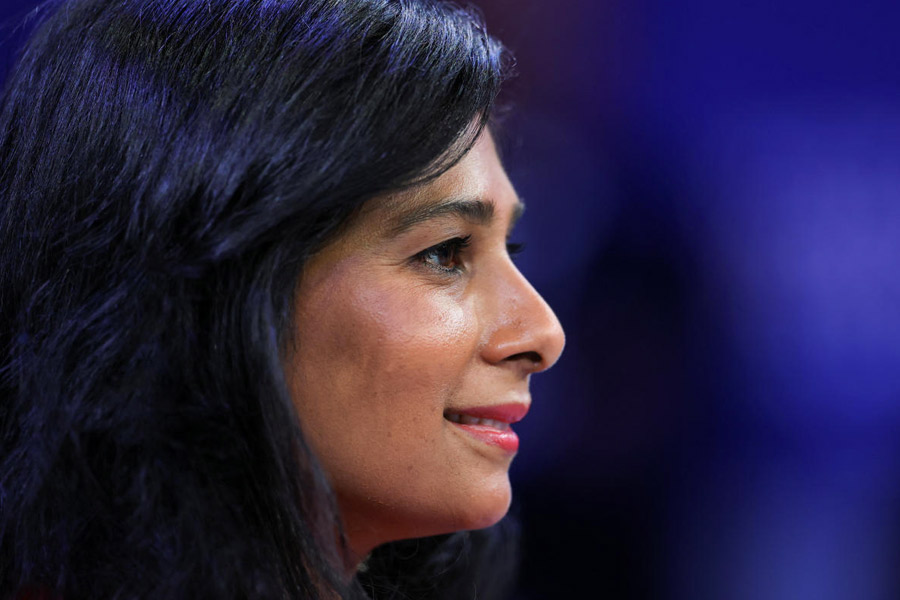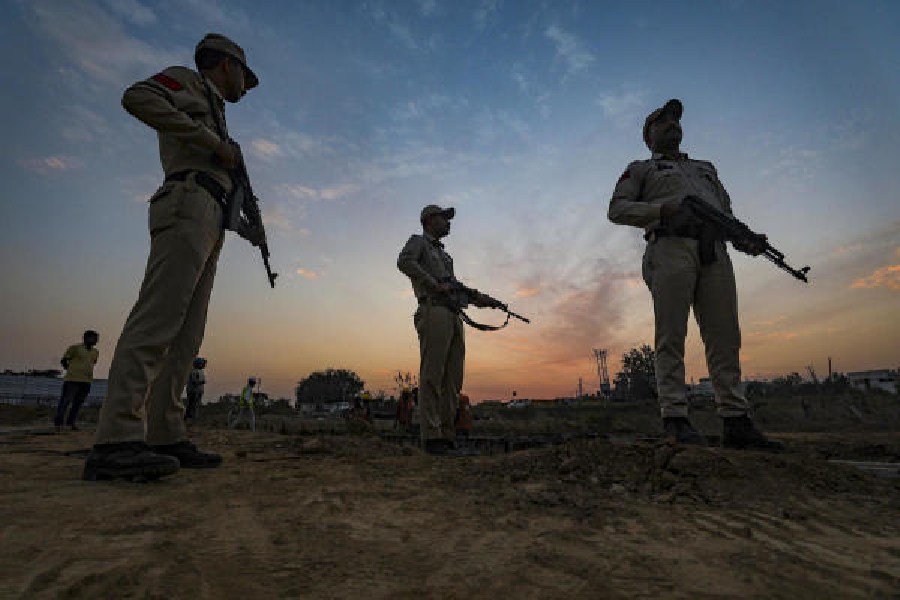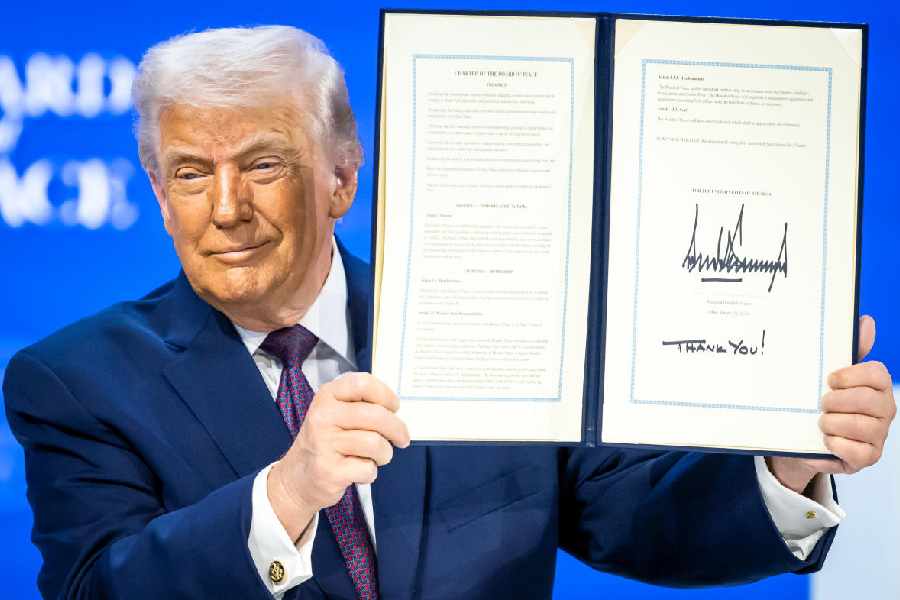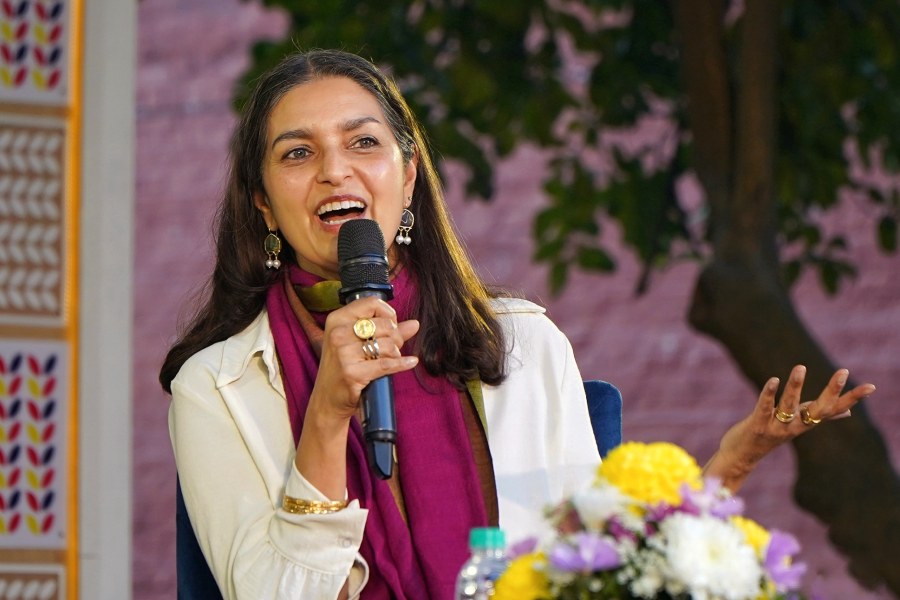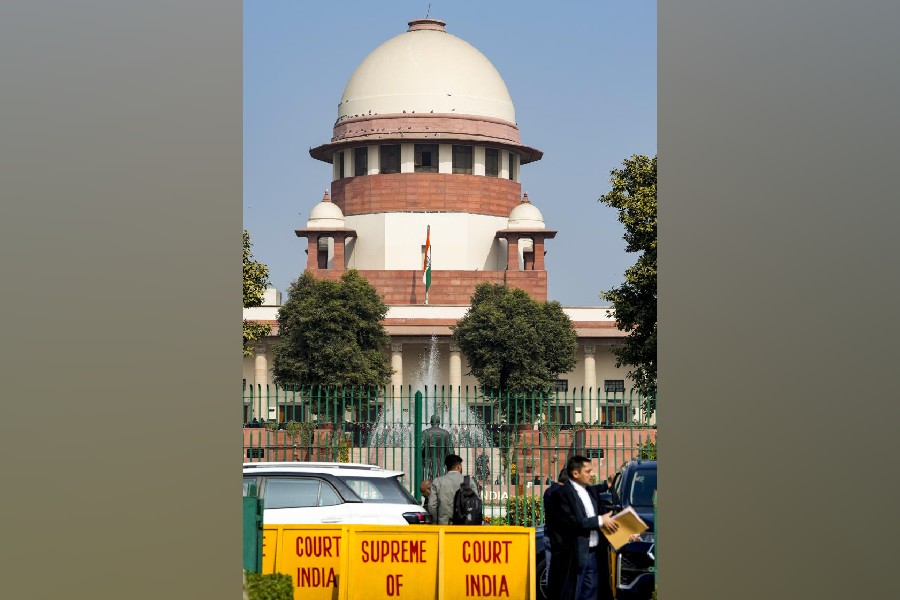.jpg)
New Delhi, June 25: The etymology of the word "juggernaut", yoga, toilets, the Emergency, sports, a meeting with the Queen, books as gifts....
Prime Minister Narendra Modi touched upon a host of issues and even discussed the weather in the 33rd edition of his monthly radio broadcast Mann Ki Baat today.
But the Prime Minister maintained radio silence on the lynchings that have mostly targeted one community and are occurring with alarming frequency in BJP-ruled states.
What made the silence starker this time than on previous occasions is that the targeted killing of 15-year-old Junaid Khan was still a raw wound when the Prime Minister went on air.
Modi left the country on an official tour on Saturday morning. Even if the speech had been recorded earlier, it could have easily been changed while the Prime Minister was in transit, given the communication men and machinery with which a leader of his stature travels.

The Prime Minister's team did find time to tweet about Portugal, his stopover before landing in the US today, and thank President Donald Trump for calling him a "true friend".
Not that Modi was unaware of developments elsewhere in the world. From the US, he tweeted congratulations to Kidambi Srikanth for his Australian Open triumph.
But not a word on Junaid.
The Prime Minister did include Id greetings in his speech and cited an example of Muslims in a village returning assistance for building toilets, saying they would do so with their own money.
The only time Modi has spoken out on sectarian vigilantism was after a group of Dalits were subjected to medieval beatings at Una in Gujarat last year - that too after several weeks had passed. Otherwise, neither the Prime Minister nor the chief ministers of the states where such incidents have taken place have even acknowledged these targeted killings.
Last week, after some municipal employees allegedly lynched an activist in Jaisalmer, chief minister Vasundhara Raje broke her silence with a tweet but referred to the murder of Zafar Khan as "demise".
The Prime Minister's persistent and studied silence on the lynchings became more deafening today when he referred more than once in his address to the messages and suggestions he had received.
He used one such suggestion to dwell at length on the Emergency - today was the 42nd anniversary of its declaration - and spoke eloquently on the need to be vigilant, throwing in the oft-repeated quote "eternal vigilance is the price of liberty" to drive home the point.
But he chose to ignore the clamour for breaking his silence on the lynchings from a cross-section of marginalised communities. So much so that some people compared his strategic silence to the characteristic silence of his predecessor Manmohan Singh.
Tanmay Bhat, co-founder of the comedy group AIB, tweeted: "Never thought you'd have to dig out 'PM is silent' jokes again."
Modi used to mock Singh about his silence and had nicknamed him "MaunMohan Singh".
Probably because it would have been too obvious to refer to the lynching of a police officer in Kashmir without talking about the lynchings elsewhere in the name of "cow protection", Modi did not mention the murder of deputy superintendent Mohammed Ayub Pandit in Srinagar on Thursday night, either.
On the Emergency, Modi said: "1975, 25th June, it was a dark night that no devotee of democracy can ever forget. No Indian can ever forget. The country had virtually become a prison. The voice of the Opposition had been smothered. Several prominent leaders, including Jayaprakash Narayan, had been jailed. Even the judicial system did not escape the sinister shadows of the Emergency. The press was completely muffled."
Tom Vadakkan, a spokesperson for the Congress, during whose rule the Emergency was declared, said: "You have a situation of an undeclared Emergency in the country."

.jpg)
